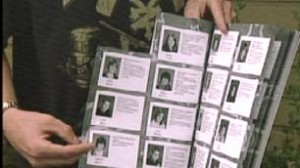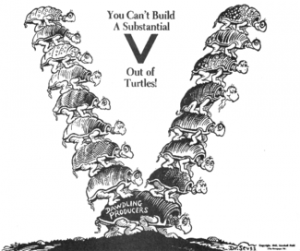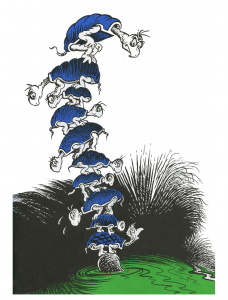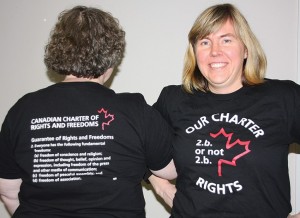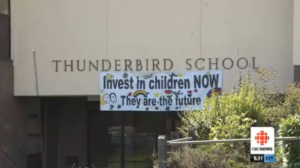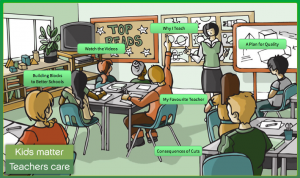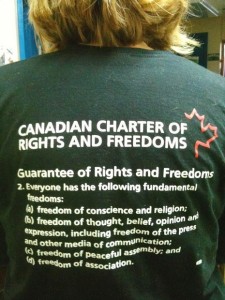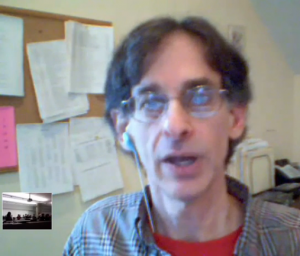I was interviewed for this story in The Georgia Straight, which raises the question of free post-secondary education in British Columbia and the lack of uptake on the topic in the current BC election discourse.
In my interview with The Straight, I highlighted the staggering debt load post-secondary students currently face. In Canada, student debt (not including provincial and private loans) is over $15 billion according to the Canadian Federation of Students. The high cost of post-secondary education in BC is a significant barrier to attendance by lower and middle income students. At least one in four non-attendees identify financial issues as an obstacle to further education.
The CFS notes that “Canadian research suggests that debt levels have a direct impact on success in post-secondary education. One study found that as student debt rose from less than $1000 to $10,000 per year, program completion rates for those with only loans (and no grants) plummeted from 59% to 8%. Similar conclusions can be drawn from Statistics Canada’s Youth In Transition Survey (YITS), which found that of those who cease their studies early, 36% cited financial reasons.”
Tuition at Canadian universities is rising faster than inflation, climbing 5% in 2012 (compared 2% inflation rate).
Neoliberal social policies have exacerbated the problems with student debt and access to higher education. Christy Clark’s BC Liberal government cut higher education by $46 million this year. In Alberta, higher education took a $100 million cut at the hands of the Alison Redford’s governing Progressive Conservative Party. As budgets are cut, colleges and universities (as well as K-12 schools) are encouraged to look for market-based solutions. BC colleges and universities are now ramping up efforts to recruit international students, who will pay five times the tuition charged to BC residence, in an effort to increase revenue. These recruitment efforts further restrict access to BC residents when there are already too few seats available in colleges and universities.
The ever increasing cost of higher education ultimately threatens existence of education as a public good in Canada (and the USA) and has deleterious effects on career choices and financial futures of millions of students as they face debt bondage. And this is not a circumstance limited to young people as many baby boomers who have gone back university are now struggling to repay their loans.
Lastly, student debt works to dampen critical thought and actions aimed at resisting the status quo. Noam Chomksy argues that “students who acquire large debts putting themselves through school are unlikely to think about changing society. When you trap people in a system of debt, they can’t afford the time to think. Tuition fee increases are a disciplinary technique, and, by the time students graduate, they are not only loaded with debt, but have also internalized the disciplinarian culture. This makes them efficient components of the consumer economy.” Exactly the kind of results neoliberal education policy makers are looking for.
Read The Georgia Straight article here:
Candidates should discuss free postsecondary education, say critics
by Carlito Pablo on Apr 25, 2013 at 3:11 am
Politicians on the campaign trail always say that education is a good thing. Yet many are silent about free university and college education.
Perhaps that’s because making this suggestion inevitably invites the question about money. What would it cost?
It doesn’t seem much, really. For fiscal year 2013-14, the B.C. government expects to collect about $1.4 billion in tuition and other fees. That’s only a small fraction—three percent—of a provincial budget totalling $44 billion.
The fact that many candidates don’t talk about free postsecondary education as a goal worth pursuing—one practical step at a time—indicates two things to Enda Brophy, an assistant professor of communications at SFU.
“On the one hand, I would argue that it demonstrates a lack of vision on their part,” Brophy told the Georgia Straight in a phone interview. “On the other, it quite obviously underscores their lack of commitment to a genuinely public education system. In other words, they can talk the talk regarding their commitment to public education, but walking the walk would mean taking concrete steps toward a free, public postsecondary system.”
According to the academic, there is an ethical argument to be made that “education should not be a commodity that is bought and sold.”
“In other words, that education and the production of knowledge, like health care, need to be accessible to anyone who wants it,” Brophy said.
As a nation, Canada committed to this ideal when it ratified the International Covenant on Economic, Social, and Cultural Rights in 1976. The treaty states: “Higher education shall be made equally accessible to all, on the basis of capacity, by every appropriate means, and in particular by the progressive introduction of free education.”
A study released in January 2012 by the B.C. office of the Canadian Centre for Policy Alternatives demonstrates that university-educated people pay, on average, $106,000 to $159,000 more in income taxes over their working lives than those with only a high-school diploma.
In Paid in Full: Who Pays for University Education in BC?, author and economist Iglika Ivanova notes that in contrast, a four-year degree costs $50,630, of which 40 percent is paid by students in tuition fees.
Ivanova concludes that “undergraduate education stands out as a profitable investment for the public treasury when all students’ payments for their education—both up-front tuition fees and additional income taxes paid over their careers—are compared with the costs of providing university education.”
In many countries in Europe and elsewhere, like Algeria and Cuba, free postsecondary education is more a rule rather than the exception, according to Simon Tremblay-Pepin. He is a researcher with IRIS (Institut de recherche et d’informations socio-économiques), a Quebec-based think tank that argues that the abolition of tuition fees is economically viable and socially just.
“If we’re talking about a progressive way to free education by lowering the fees year after year, it could be a good way,” Tremblay-Pepin told the Straight by phone when he was in Vancouver for a speaking engagement. “It’s not something that you need to do overnight. Still, you must have the objective in your head that you’re going to a free education and not just lowering fees for electoral reasons because you want to have the youth vote. That’s the difference between having a plan for society and trying to collect votes.”
B.C.’s Green party has declared that “universal and free” education at all levels is one of its long-term goals, promising an immediate reduction of 20 percent in tuition fees.
“The Green party is really out in front on this issue, much more so with a greater vision than either the [B.C.] NDP or the Liberals have offered at this point,” UBC education professor E. Wayne Ross told the Straight in an April 19 phone interview.
The ruling B.C. Liberals have pledged to cap tuition-fee increases at two percent. But with tuition fees having doubled since the Liberals returned to power in 2001, Ross noted that education is already “unaffordable”.
New Democrats have talked about a $100-million needs-based grant system. “That’s important because those needs-based grants have disappeared under the Liberals, but that’s a Band-Aid,” Ross said. “It doesn’t really address the overall problem that we face with student debt and the impact of the lack of access to higher education because of the tuition levels.”
Although the Greens are an “outlier” in the mainly Liberal–New Democrat contest, that’s a good thing, according to Ross. If their idea of free postsecondary education gets traction during this election campaign, the Greens may “pull parties like the NDP, in particular, maybe back towards the left side of the spectrum a little bit more”.
But Ross also noted that because neoliberalism, or the belief that the supremacy of the market trumps public good, is dominant in this age, perhaps the Greens might have a different message if their political fortunes were somewhat different: “If the Green party was more competitive, would the Green party ever say that? And I’m not trying to knock the Green party. I’m also trying to say that [as] the NDP moves towards what they see as the electable centre the closer, the better their [electoral] chances get.”
Source URL: http://www.straight.com/news/375006/candidates-should-discuss-free-postsecondary-education-say-critics

 Follow
Follow

